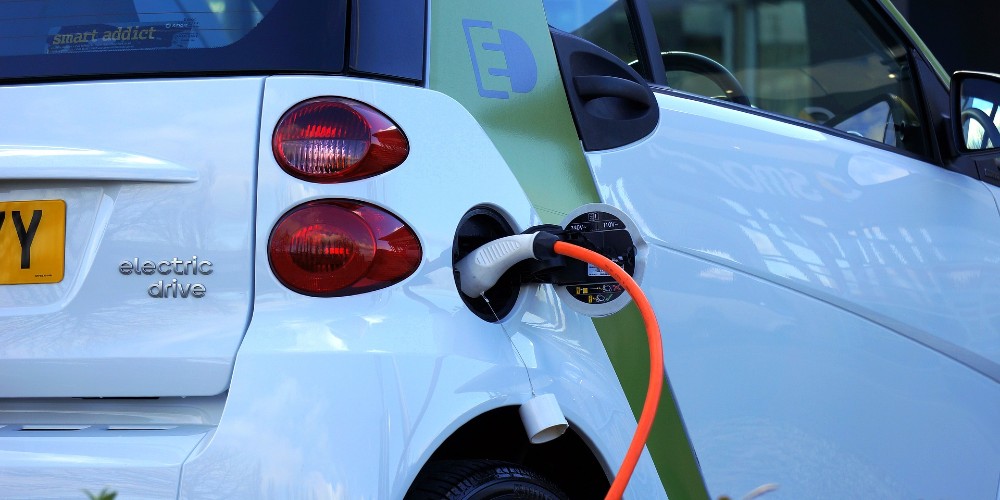Contrary to the claims of left-wing media programming, electric vehicles (EVs) are not worth the money, especially compared to gas-powered cars that hold their value at twice the rate.
Put another way, EVs depreciate in value at twice the rate of gas-powered cars, this according to a new study based on data from ChooseMyCar.com. Researchers found that EVs depreciate at double the rate of gas-powered cars, making them an expensive and really bad investment over the longer term.
On average, EVs lost 51 percent of their purchase value in the three-year period of time between 2020 and 2023. Comparatively, gas-powered cars during that same time period lost 37 percent of their value, on average.
The study also found that the higher the original purchase price of the car, the greater the loss in value. One of the worst offenders is the Tesla Model S, an overpriced heap of mostly cheap plastic that the study found loses nearly $32,000 in value in just three years.
Entry-level EVs such as the Nissan Leaf are not much better. In fact, percentage-wise, the Nissan Leaf is even worse than the Tesla Model S in terms of depreciation, losing a whopping 58 percent of its value in just three years.
(Related: If everything shifts to electric like the leftists have planned, there will never be enough electricity available for everyone.)
Increasingly more Americans are just saying NO to EVs – they’re just not worth it
As trendy as they might be in places like California and New York, EVs are actually not all that popular among most Americans. In fact, there is decreasing interest in EVs the more time that passes, even though they are being branded as the cars of the future.
According to a new J.D. Power survey, the ratio of U.S. car shoppers uninterested in buying any type of EV is increasing.
“Top-line metrics on overall EV market share, availability and affordability have been on a long-term upward trend,” J.D. Power said in a statement.
“… but beneath those headline numbers we are starting to see some consumer behaviors that suggest a possible bifurcation of the automotive marketplace.”
The percentage of car shoppers that is “very unlikely” to consider purchasing an EV in the next 12 months reached 21 percent in March, up 2 percent from 19 percent the month prior. According to J.D. Power, this is the highest “very unlikely” response to EVs the group has ever seen.
The biggest reasons why increasingly more American consumers want nothing to do with EVs has to do with price and charging. Not only are the cars themselves obscenely expensive, but electricity costs are increasing as well, not to mention the time it takes to recharge an EV.
Millions of Americans can see the writing on the wall that the grid simply cannot handle the load of everyone charging their EVs daily, all at once. The grid will fail over time, and who wants to get stuck or stranded in an EV with no way to charge it, particularly in the event of a power outage?
Of those who responded to the J.D. Power survey indicating that they are either “very unlikely” or “somewhat unlikely” to purchase an EV, 49 percent cited “lack of charging station availability” and “purchase price” as the two biggest reasons for choosing a gas-powered car instead.
“Limited driving distance per charge” and “time required to charge” were also frequently cited, with 43 percent and 41 percent of respondents, respectively, listing these as two additional major factors in their decision to forego even considering an EV purchase.
More of the latest news about the EV scam can be found at GreenTyranny.news.
Sources for this article include:
What Would You Do If Pharmacies Couldn’t Provide You With Crucial Medications or Antibiotics?
The medication supply chain from China and India is more fragile than ever since Covid. The US is not equipped to handle our pharmaceutical needs. We’ve already seen shortages with antibiotics and other medications in recent months and pharmaceutical challenges are becoming more frequent today.
Our partners at Jase Medical offer a simple solution for Americans to be prepared in case things go south. Their “Jase Case” gives Americans emergency antibiotics they can store away while their “Jase Daily” offers a wide array of prescription drugs to treat the ailments most common to Americans.
They do this through a process that embraces medical freedom. Their secure online form allows board-certified physicians to prescribe the needed drugs. They are then delivered directly to the customer from their pharmacy network. The physicians are available to answer treatment related questions.



The entire concept is bizarre and conspiritorial: if Rare Earth metals are a scarce or limited resource (or at least we are told that) then why would anyone wish to deplete them on EVs and self–driving EVs and electric/Wi–Fi scooters and bikes —- PURE INSANITY!?
Unless the plan IS TO DEPLETE THEM —– shrinking the national power grid while adding EVs en masse to the mix is obvious pure insanity —– further evidence of the dumbing down of America!!!
Sometimes a remembered detail clicks and awareness happens: recalled that years ago I went to senior library people and questioned why the discontinuance of certain excellent library research tools (example: the Directory of Directories, etc.) which greatly aided library research but was met with vacant stares —- they had no idea and were clueless —- and strangely disinterested?!
IN RETROSPECT, have since learned that was when George SOROS began his donations and grants to the American Library Association and similar organizations!
We arw being assaulted on all levels from all sides!!!